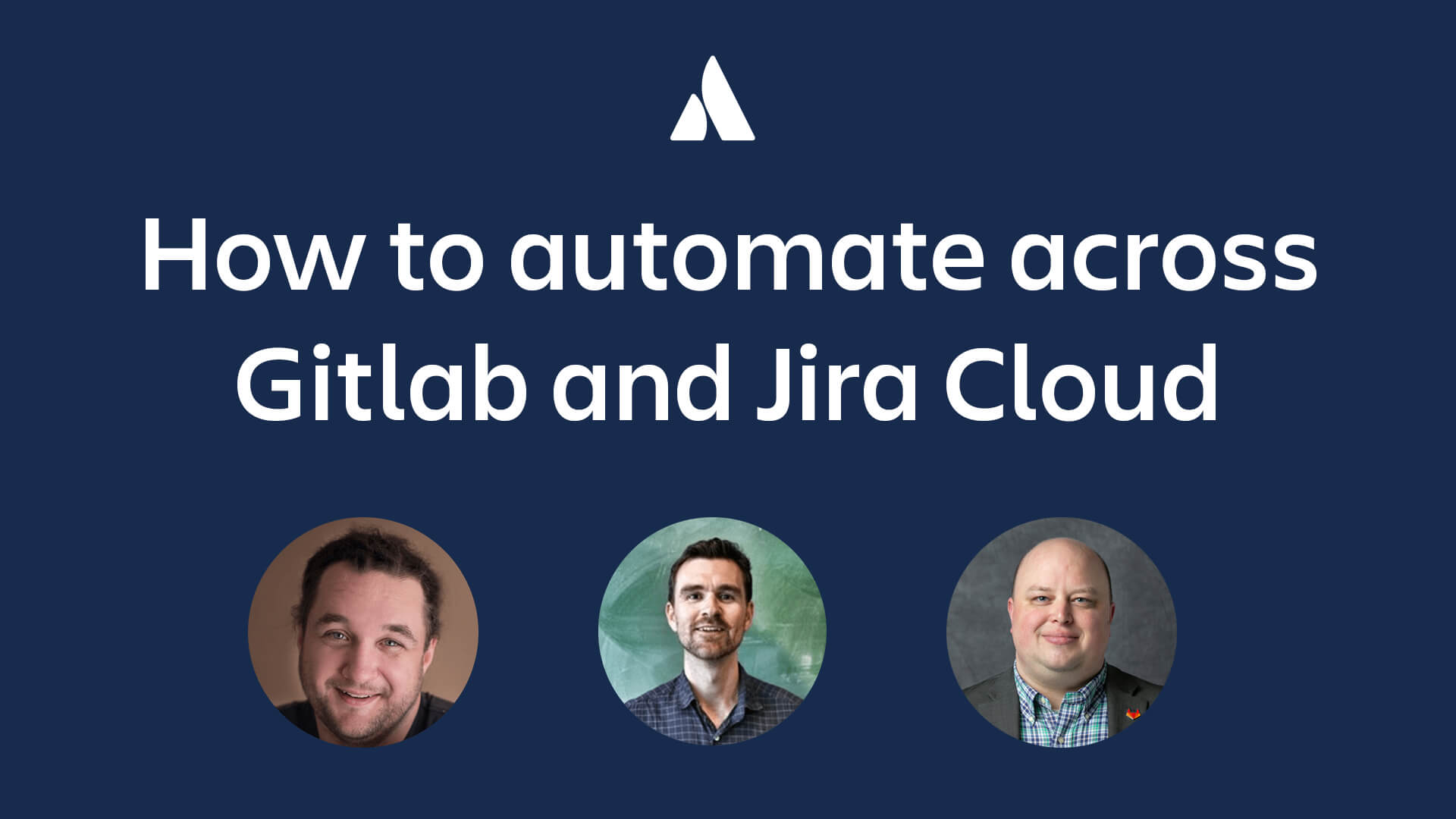How to automate across GitLab and Jira
If your team uses Gitlab and Jira, cast aside all social plans and join us for this special webinar co-hosted with the folk from Gitlab! Using our new native DevOps triggers, your team can now automate any updates in Jira when you finish a piece of work in GitLab - without going into Jira. It is no-code, low maintenance and there are endless problems these new triggers can solve for you.
During this webinar you will:
- Learn how to create an automation rule that updates Jira based on an action you take in GitLab such as Pull request created/merged, commit created or Branch created.
- Take away actionable templates that you can implement in minutes to provide immediate value.
- Learn how to access and use almost any data in Jira with smart values specific to these use cases.
After this webinar, there is a good chance you will receive flowers from your Dev team when they realize they no longer need to switch between tools. You will also sleep better at night knowing Jira is truly up to date!
발표자
John McKiernan
Principal Product Marketing Manager at Atlassian
John is a Product Marketer on the Jira Cloud team, focusing on automation. He loves hearing from customers after they have created their first automation rule in Jira. In his spare time, John writes children’s books, customised songs and gives sugar to his daughter when his wife isn’t looking.
Matthew Jensen
Engineering Manager
Matthew is the Engineering Manager on the team that shipped the DevOps automation triggers that allow you to automate natively across GitLab and Jira. He has been with Atlassian since the olden days when cassette tapes were the technology of choice to consume music. When not building great experiences in Jira, he is playing Sunday league cricket where his bowling figures are the envy of rival teams in Sydney.
Brendan O'Leary
Brendan O'Leary is a Senior Developer Evangelist for GitLab who connects with developers, contributes to open source projects, and shares his work with about cutting-edge technologies on conference panels, meetups, in contributed articles and on blogs.


